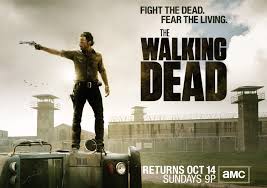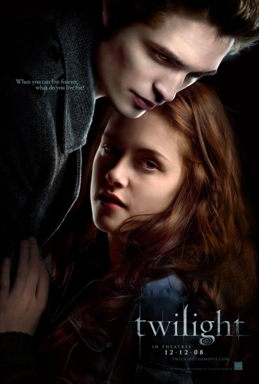By Jim White
Americans love sinking their teeth into stories about vampires, and some fans live for the latest tales of the undead. All this leaves some Christians wondering what to make of the current fascination with vampires, zombies, werewolves and witchcraft?
Authorities debate the causes and effects of the “undead” genre, but its popularity is beyond dispute. The bestselling Interview with the Vampire, The Vampire Diaries and Twilight books have been produced as TV series or as motion pictures. In fact, the five Twilight films grossed almost $1.4 billion nationally and $3.4 billion worldwide.
Zombie walks — organized gatherings of fans who dress as zombies in various stages of decay and shuffle together down the street — have occurred in many major cities in the United States, Great Britain and Australia.
 AMC’s The Walking Dead is a huge hit on television, and movie studios still are investing heavily in the zombie craze, believing the public is eager for more. A casual stroll through a chain store toy department reveals skeleton and vampire dolls. Even fashion reflects interest in the macabre.
AMC’s The Walking Dead is a huge hit on television, and movie studios still are investing heavily in the zombie craze, believing the public is eager for more. A casual stroll through a chain store toy department reveals skeleton and vampire dolls. Even fashion reflects interest in the macabre.
Ross Clifford, principal of Morling, the largest Baptist college in Australia, believes the fascination with the occult has roots in what is happening culturally.
“If you go back 150 years or so, you find the same interest in the undead — vampires, monsters, Frankenstein — but it tends to be a reaction to the industrial revolution,” Clifford said in a recent Skype interview. “In that context, you see what happens when man tries to create immortality outside of God, and they’re monsters.”
“What you have in the new movement is something that is different,” he said, “the same interest in vampires, werewolves, etcetera, but it appears now to be in a sense of acceptance, redemption, love.”
Clifford, author of The Cross is not Enough: Living as Witnesses to the Resurrection, said that is particularly true in the Twilight Series, written by Stephenie Meyer, who is a Mormon.
“There is a certain purity in those books,” he said. “They are very much picking up the thirst for redemption, love, acceptance through a kind of antihero who is also speaking for hope and release. And it’s just remarkable, its impact.”
 Kevin Meadows, pastor of Grandin Court Baptist Church in Roanoke, Va., said churches can gain insight by peering into the phenomenon and exploring the spiritual needs that drive it.
Kevin Meadows, pastor of Grandin Court Baptist Church in Roanoke, Va., said churches can gain insight by peering into the phenomenon and exploring the spiritual needs that drive it.
Meadows believes that one reason the vampire-and-zombie genre is so popular is the natural fear of death. In response, he planned a three-part sermon series to talk openly and honestly about death and dying.
Meadows said the craze also taps into basic survival instincts. A common theme to zombie folklore is a space venture gone wrong, introducing to Earth a virus that stirs the dead to rise — “a breakdown in society: no laws, no society and basically survival of the fittest.”
“We are fearful of what the end is going to look like,” the pastor said. “What do we do to survive when everything breaks down?”
Meadows find parallels between the films and some of the prophetic voices in the Old Testament. “They represent the fear and fascination of survival when society breaks down,” he said. “I think that hooks people at some level.” Meadows termed the fad “a teachable moment” for Christians to speak to culture.
Clifford, however, contends fascination with the undead is more than just a fad. “It is fair to say now that vampires and the like are a folk religion,” he said. “This is not a passing phenomenon. It is a folk religion that is starting to spread around the world. That’s extraordinary.”
Mike Parnell, a Virginia pastor who also reviews movies for the Baptist Center for Ethics website EthicsDaily.com, says deciding whether to allow a child to watch vampire or zombie films requires parental vigilance — a habit he practiced with his own children when they were young.
“I would not allow my children to see something that I had not seen first,” Parnell recalled. “They saw no movie up until they turned 13 that I did not preview.”
While parents need to be concerned, Parnell said it is even more important that they be informed.
“Too often, parents look at a movie rating and think that is the only thing they need to be concerned with,” he said. “A rating is nothing more than a statement a group makes that they believe the movie is appropriate for a particular age group.”
Clifford believes church leaders have a responsibility to be realistic about what Christian youth experience. “I think one of the great problems we have is we pretend our young people are not reading such books,” he said. “They are.”
Clifford said church leaders can take not only movies but disturbing images in the news to talk about how life’s meaning is fulfilled in the person of Jesus. “Young people are very capable of having that conversation, and I think they are dying to have that conversation with people who take them seriously,” he said.
“What I find, when we talk about Twilight or whatever, is that numbers of young people just keep coming,” Clifford said. “However the conversation goes, let’s at least get it on the agenda and talk about it.”
Related New Voice feature:
